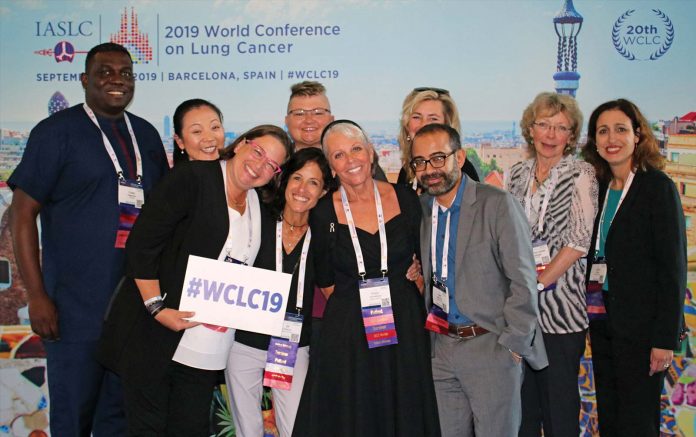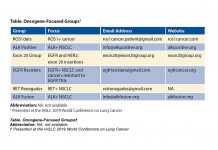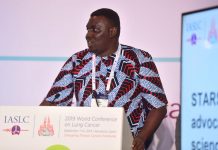
By Adam Mohrbacher
Posted: December 11, 2019
Patients with lung cancer and their caregivers are becoming more empowered and knowledgeable than ever. As a result, lung cancer now has a growing group of patients who have lived long enough to become advocates for their disease. Some are evolving into research advocates— volunteers with a personal connection to cancer who are passionate about helping translate research findings into meaningful outcomes for patients and their families. Lung cancer research advocates provide the perspective of the collective lung cancer patient community in order to help research focus on the questions most important to patients and to create studies that will extend lives and improve quality of life for people who have lung cancer. However, learning the complex mechanisms of action regarding different cancer therapies and details of clinical trial design can be a steep learning curve for many patients, even those who are strongly motivated.
Over the past year, the IASLC launched a new program designed to further empower aspiring patient research advocates (PRAs) called STARS: Supportive Training for Advocates in Research and Science. STARS aims to train, develop, and nurture lung cancer patient research advocates (PRAs) in the science and realities of lung cancer research. In the program, PRAs work with mentors (experienced research advocates) and receive training to increase their scientific literacy and ability to provide accurate scientific translation to their patient-caregiver communities. Additionally, the program equips its participants to connect and communicate with lung cancer researchers and research agencies in order to bring the patient perspective to studies and policy. It involves a 6-month commitment on the part of both mentors and PRAs, culminating in each PRA presenting on a scientific focus topic to the rest of the STARS cohort. PRAs also must develop a plan for how they intend to use the skills acquired during STARS to communicate with the public or their lung cancer community during November’s annual Lung Cancer Awareness Month event. Finally, both mentors and PRAs attend the IASLC World Conference on Lung Cancer (WCLC), which will be held in Singapore in 2020. At WCLC, they attend relevant presentations geared toward enhancing their knowledge of lung cancer research and treatments as well as several activities that are exclusive for STARS participants.
“I firmly believe that research advocacy is a community endeavor. That’s what the STARS program helped accomplish,” said Upal Basu Roy, MPH, PhD, vice president of research for the LUNGevity Foundation, who also served as a mentor for STARS inaugural year. “Not only [does it] train future patient research advocates, but [it] also creates a long-lasting community that can co-learn and co-evolve, with the goal of ensuring that lung cancer research incorporates the patient voice.”
Preparation for the second year of STARS is now well underway, with the application period scheduled to open in early February 2020. Healthcare professionals are encouraged to recommend the program to any established patient with lung cancer or caregiver advocate looking to increase their scientific capabilities and advocacy.
To apply to the STARS program, visit www.iaslc.org/stars. ✦
Related Article:
From Patient to Patient Research Advocate: The STARS Journey










